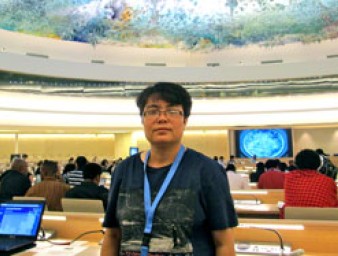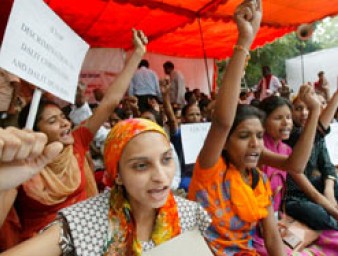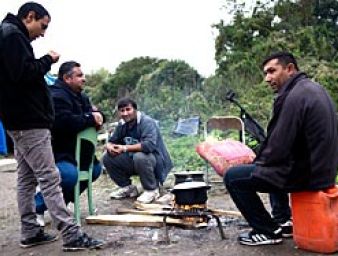A Roma victory against eviction.
12 February 2024
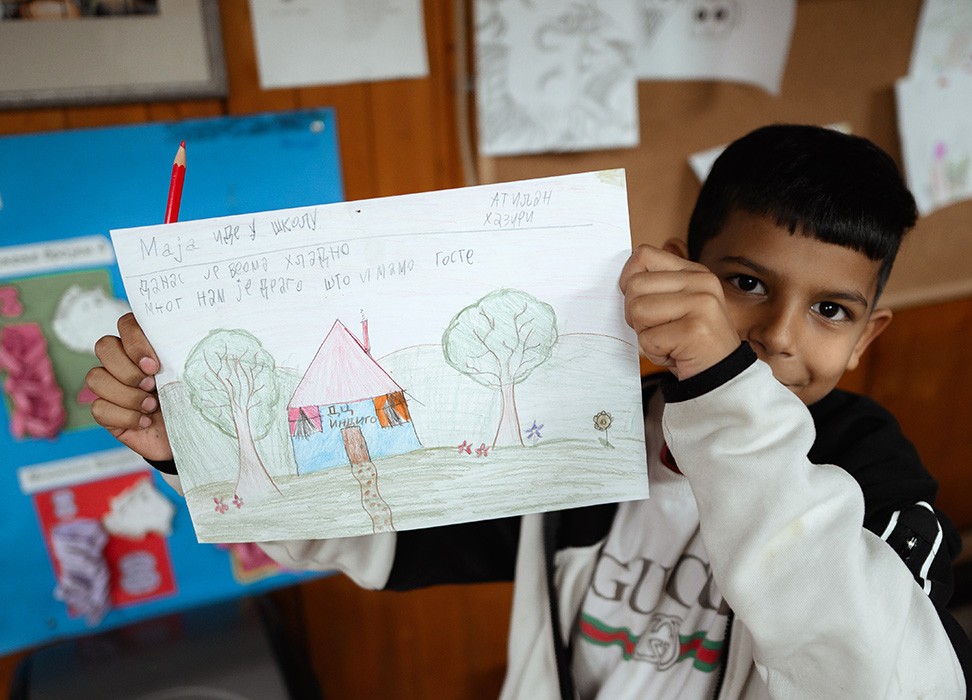
“I felt like I was living in the Stone Age. And to think that I have to endure something like this in the 21st century,” said Mevla Čupi, a 60-year-old Roma woman who has braved brutal winters without electricity in her fight against eviction from her home near the city of Niš, in southern Serbia.
Čupi is one of 550 residents of the settlement of Crvena Zvezda whose lives were made unbearable by prolonged power cuts designed to force them to leave.
“Since 2011, the entire settlement had been connected to a single electricity meter and sent one lump bill, so they had no insight into their individual consumption, and the debts piled up,” said Aleksandra Petrović , a UN Human Rights’ Human Rights Officer in Serbia. “But the fundamental problem was an unresolved property and legal dispute. Turning off the electricity was one of the methods of pressuring them to move out.”
The growth of a community
Crvena Zvezda's story began in the 1960s when 37 apartments were allocated to families who had lost their homes in devastating floods around Niš. Over time, the settlement grew to 105 houses, with land ownership shared by the city of Niš and a private company.
Trouble arose in 2007 when the company, hoping to develop its land share, pressured the city to evict the residents who stood in the way of commercial development. So began a lengthy tug-of-war that would pit powerful business interests against the local community they were fighting to dislodge.
The company backed its efforts to evict the residents with massive power outages – in 2011, 2014, 2016, and 2018. Some lasted more than half a year throughout the harsh winter.
Living conditions deteriorated and residents would gather at a local social center for warmth and hygiene.
“Children attending school were the most affected, as they lacked bathing facilities and spent part of their days in total darkness, in constant fear of fire as they relied on candles,” said Tamara Simonović, Director of the Social Center Group for Children and Youth Indigo. “During the outages, many residents came to us for basic hygiene needs, particularly those with small children because we had a bathroom with hot water. The center helped educate the people of Crvena Zvezda about their rights and provided essential services.”
During the third power outage in 2016, residents fed up with their harsh way of life approached the UN Human Rights team, triggering a visit by Petrović.
“I entered every single house and inside, I found frightened people sitting in the dark. I saw children who had been operated on, pregnant women, people with disabilities, children with asthma unable to fill their pumps,” she said. “To make things worse, the houses were heated with wood, which made a precarious health situation even worse. There was perpetual smoke, and having to carry candles for light created an ongoing risk of fire. The electricity problem was just the tip of the iceberg. The real challenge was how to resolve the housing issue.”
Her visit would kickstart a process that would empower the community and allow them to take part for the first time in decisions affecting their lives.
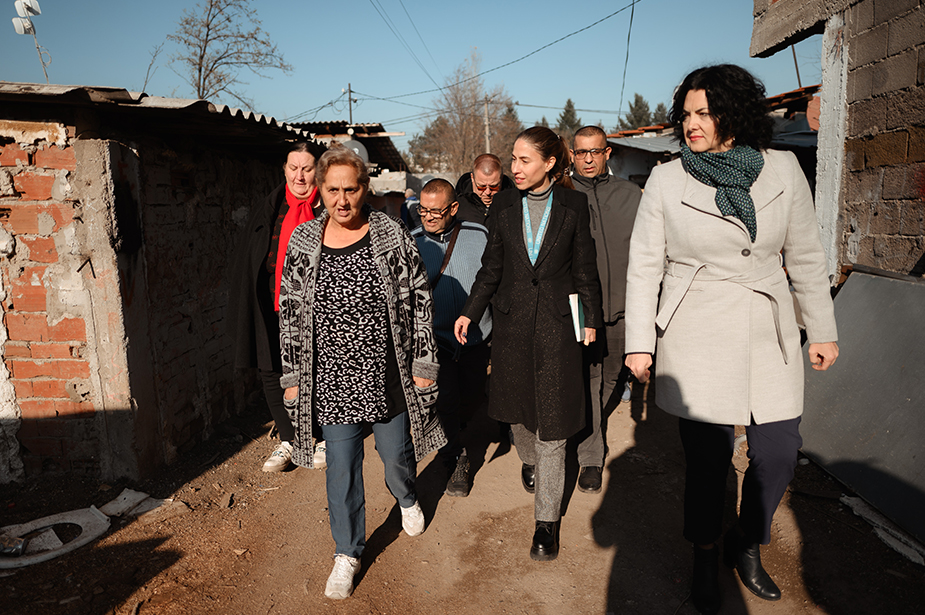
Aleksandra Petrović (shown, center) from the UN Human Rights team and Dragana Sotirovski (shown, far right), the Mayor of Niš, visited the community and met with the residents. Photo credit: © Stefan Vidojević from MaxNova Creative
Empowering local communities
Within six months of Petrović’s visit, the UN Human Rights team had pulled together a conference involving government representatives, academia, and more than a hundred participants, including Roma settlement representatives, who now had a platform from which to voice their determination to stay put.
Until then, the city’s approach centered on moving the residents elsewhere and finding them suitable housing. That approach shifted with the election of Mayor Dragana Sotirovski.
“Upon meeting the residents, I realized their deep connections to their homes,” Petrović said. “They did not want to change their location. Perhaps as a woman and a mother, I naturally sympathize with these women on some essential level. So, we began exploring solutions that would improve their living conditions while allowing them to stay in their community.”
Finding a sustainable solution
It took years but finally, in 2023, the city of Niš designated Crvena Zvezda for social housing, with plans to build apartments for all residents and help promote inclusivity and diversity by inviting non-Roma families to move into the settlement.
Building plans are now in place and the city of Niš is raising funds to begin construction. Mevla Čupi emerged as a vocal leader in this struggle.
“We Roma have rights too,” Čupi said. “UN Human Rights showed us how to fight for our rights. Now, no one can force us out. Soon, we will move into better homes, leaving the past behind, but never forgetting the struggle that brought us here.”
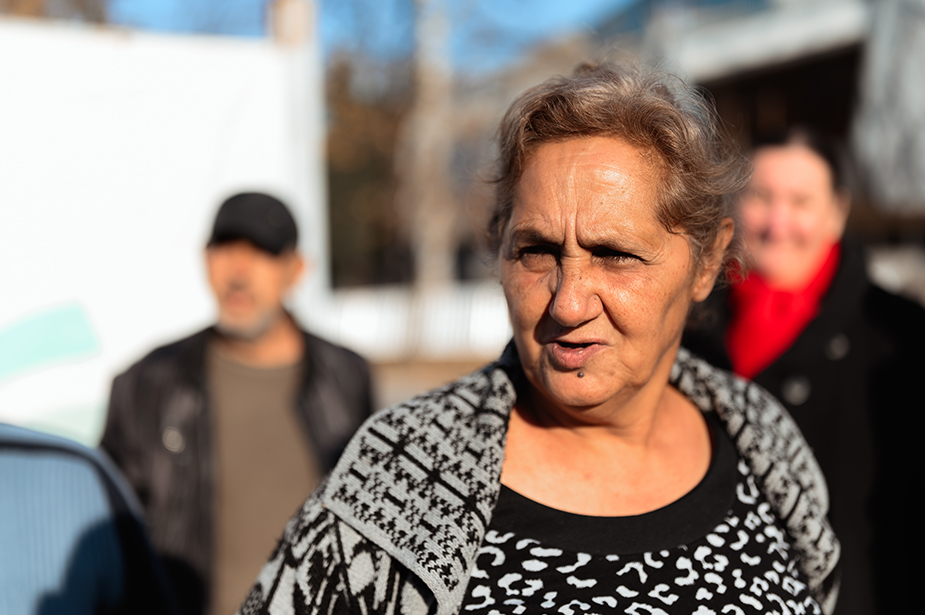
Mevla Cupi is a resident of the Roma settlement in Crvena Zvezda. Photo credit: © Stefan Vidojević from MaxNova Creative

